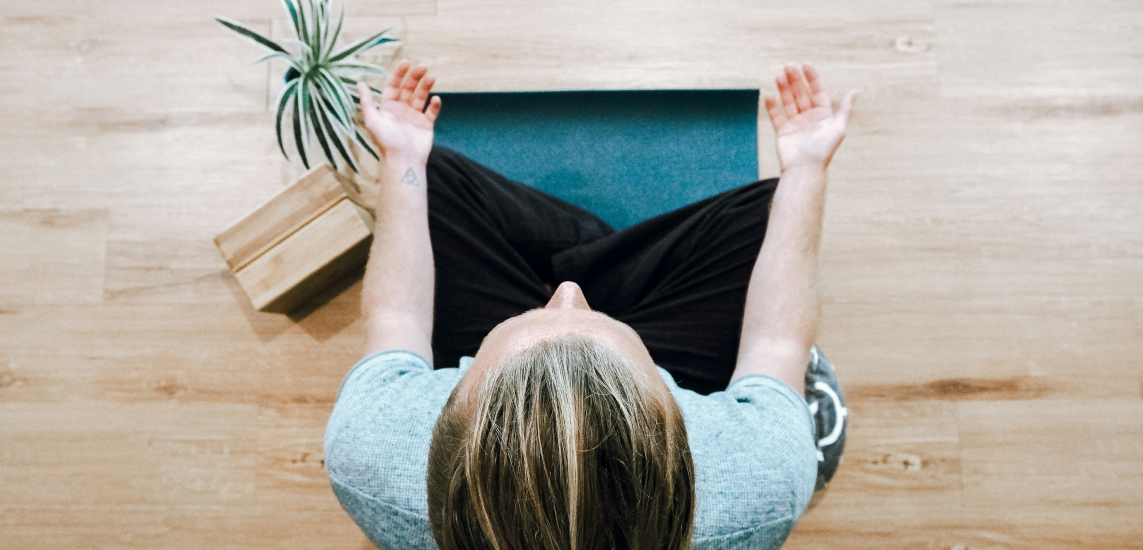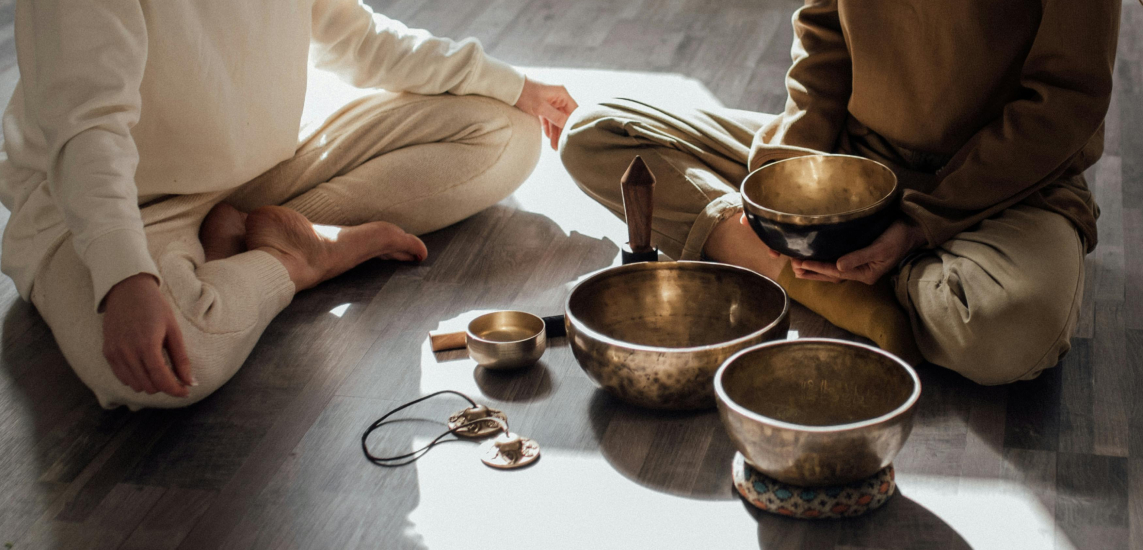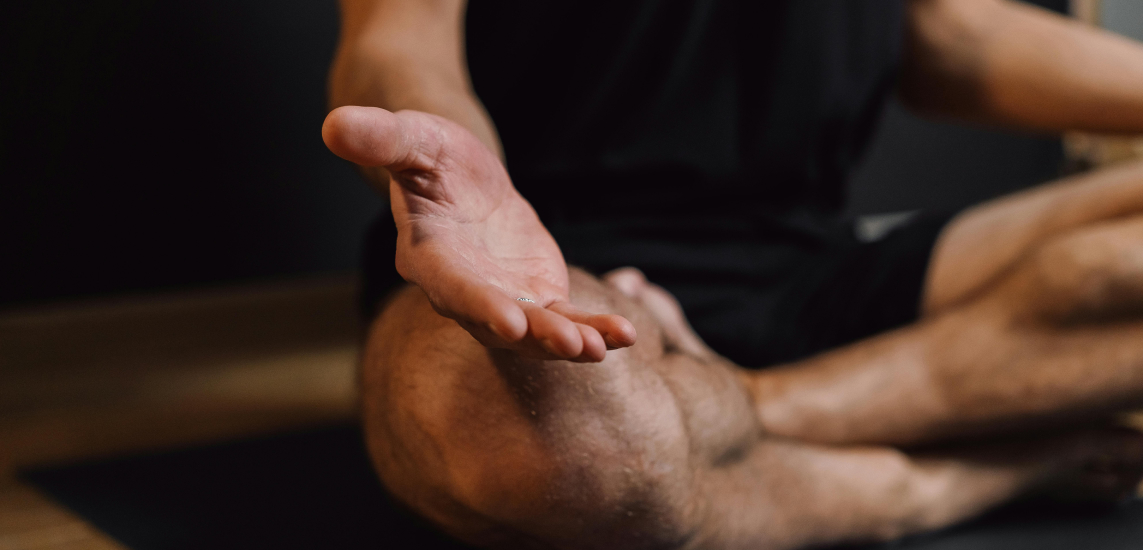As Westerners, one of the most common mistakes we make is to think meditation is complicated. We place such high value on the intellect, that we like to think there’s a secret method or secret code to crack, because then we feel skillful. But meditation is very simple, and when we make meditation complicated, we work against ourselves.
Meditation is ultimately about trust and surrender. The path to surrender will be a little different for everyone, but surrender is the essence. The more simple we can get, the deeper we’ll go.
Meditation is also much more an art than a science. If you wanted to learn to make beautiful paintings, a person could tell you how to use the paint brush and teach you some things about color and technique – but the spirit of a great painting, that can only come from inside you. From your soul-searching and the degree to which you’ve opened yourself up to the creative spirit.
The same is true with meditation. We want to turn toward the vast inner space and open, with a quality and approach that is loving. This approach will set you on a path that you can then follow and explore on your own, in your way, without limit.
So in this piece, I want to offer you a more heart-centered, surrender based orientation to meditation, as well as what I consider to be the four fundamental commitments for any meditation practice, to help you find that light and simple, open place.
Join Julia in her live event “Orientation To A Heart-Centered Life” on January 10th, 2021. This will be a talk and meditation on the personal and global need to live in more compassionate, connected, heart-centered ways.
A Practice Of Relinquishing
In traditional Buddhist trainings, when one steps onto a spiritual path, the practice that is always given first – before any mindfulness or meditation practices – is a generosity practice.
Why?
Because the quality of relinquishing, the letting go that is fundamental to true generosity, allows all other efforts related to the cultivation of mindfulness, meditation, compassion, and joy to flow more easily. The capacity to let go is essential.
The spiritual path tends to follow a different route here in the West because of our desire to be skillful with our minds. We are enticed through the intellect and by mental challenges. We enjoy the sense of focus and control in that. And while there are some ways in which our intellect and ambition can move our spiritual process along, our intellect and our clinging to control are also major obstacles, because they are the opposite of relinquishing.
A spiritual life – which I’ll define here as one in which we come to understand the interconnectedness of things, the oneness – is not an intellectual pursuit. In fact, the Buddha described the path of enlightenment as “a liberation of the heart into love and connection.” It’s the vast heart space that we ultimately aim to occupy in our spiritual practices, including meditation.
The over-reliance on the intellect is why many of us in the West mistake the ultimate aim of meditation as a training in focus or a quieting of the mind, as a practice in concentration. That aspect of meditation is a step in but there’s so much more on offer.
Concentration and meditation are not the same thing. Concentration has a point of focus. Meditation, by definition, is an expansive awareness with no point of focus. It includes all things in its awareness, but no longer as parts, as one.
Concentration is more about control and focus and with concentration we’re still in the mind. Meditation is about putting the mind and its need for control down, and opening up to a greater state of vastness and surrender.
To be clear, this isn’t a criticism of concentration-oriented practices. Concentration techniques are valuable techniques that can help us move towards surrender. What I’m saying, rather, is that concentration is not the same as meditation, and concentration alone will not transform us.
What will transform us is finding our way into the beautifully still, deeper aspect of the heart space, where a great settling and spreading can occur. Where love becomes infinite. Where the dualities between self and other disappear, the veils between the seen and unseen are lifted, and our suffering fades alongside fading thoughts of not-enoughness, superiority, and separation in general.
While the mind excels at making distinctions and differentiations, and while there are plenty of places in our lives where such capacities serve us, the heart does the opposite. The heart is a holder of all things. All truths. All realities. All paradoxes. It’s like an mycelium web that connects us to all things. If the heart is in a protracted or protective state, we feel cut off and isolated, sometimes from our own selves. But when we enter and open the heart, that web extends in all directions and connects us. When the heart space is open, we can be alone any time, even all the time, and never feel cut off. Keeping the heart space open and healthy is essential to our happiness, and meditation is a practice that helps us do that.
So as difficult or even terrifying as it may seem, we want to put down the intellect and view our meditation practice not so much as a doing, but more as a relinquishing. A relinquishing of control. A relinquishing of productivity. A relinquishing of self. A relinquishing of our story and our attachment to it. A letting go of thought in general. So that in that emptiness, in the space made available by your relinquishing, your true nature and the true nature of all things can be revealed to you.
This takes time and commitment. And for the modern mind, it also takes trust. Trust to stop thinking, trust to stop trying to make things happen, trust to suspend your mental efforting and open yourself to a different kind of knowing if you’ve been relying almost exclusively on the mind for all these years. It’s an act of trust to put that down, but it’s worth it. Because living so much in our minds is not leading us down a happy or sustainable path.
How To Commit To Your Meditation Practice
To help you make your way into that lighter, open space, these are the four commitments I recommend as a foundation for any meditation practice.
- Approach your meditation from the heart, not your mind. When you approach your meditations from a transactional mind that wants to check something off the self-care or spirituality list, yet is unwilling to let go, even for a moment, of who you think you are or of your material world concerns and beliefs, you’re unlikely to get past the shallow surface and you’re unlikely to feel engaged in your meditation. But if you approach yourself with love, with a willingness to surrender, and a willingness to meet yourself just as you are, to feel your way into the heart space so that you might saturate in the love and belonging that it knows, then you will feel connected to your meditations and you will also be transformed. This means giving your body and its nervous system the time it needs to quiet down from all the thinking it’s been reacting to prior to your sitting.
- Be still in the body. If possible, set yourself up comfortably enough that you won’t have to adjust every few minutes, and commit to not adjusting your body every time your mind asks you to. Sometimes your mind will make up a reason why you need to adjust in order to distract you, because the truth is, the mind is a little afraid of this vastness you’re opening to. But if it finds that you aren’t responding to its persistent instructions to adjust, it will eventually give up. So commit to stillness. Not rigidity. But stillness. As the body finds this stillness, the mind will eventually follow.
- Allow everything about the experience to be exactly the way it is. Find a simple allowance and awareness of the thoughts and energies moving the way they move and draw no conclusions about them. Simply observe them like you observe the rain, letting things be just as they are, without any need to change them.
- Be easy and light about everything. Not masterful and serious. Just easy and with a very light touch. For example, when you notice you’re following your thoughts, simply begin again with lightness, ease, and friendliness. Find the breath again; it will be right there waiting for you. Just start again, no matter how far you may have strayed or for how long. You simply begin again, with a very light touch.


-1.jpg)




